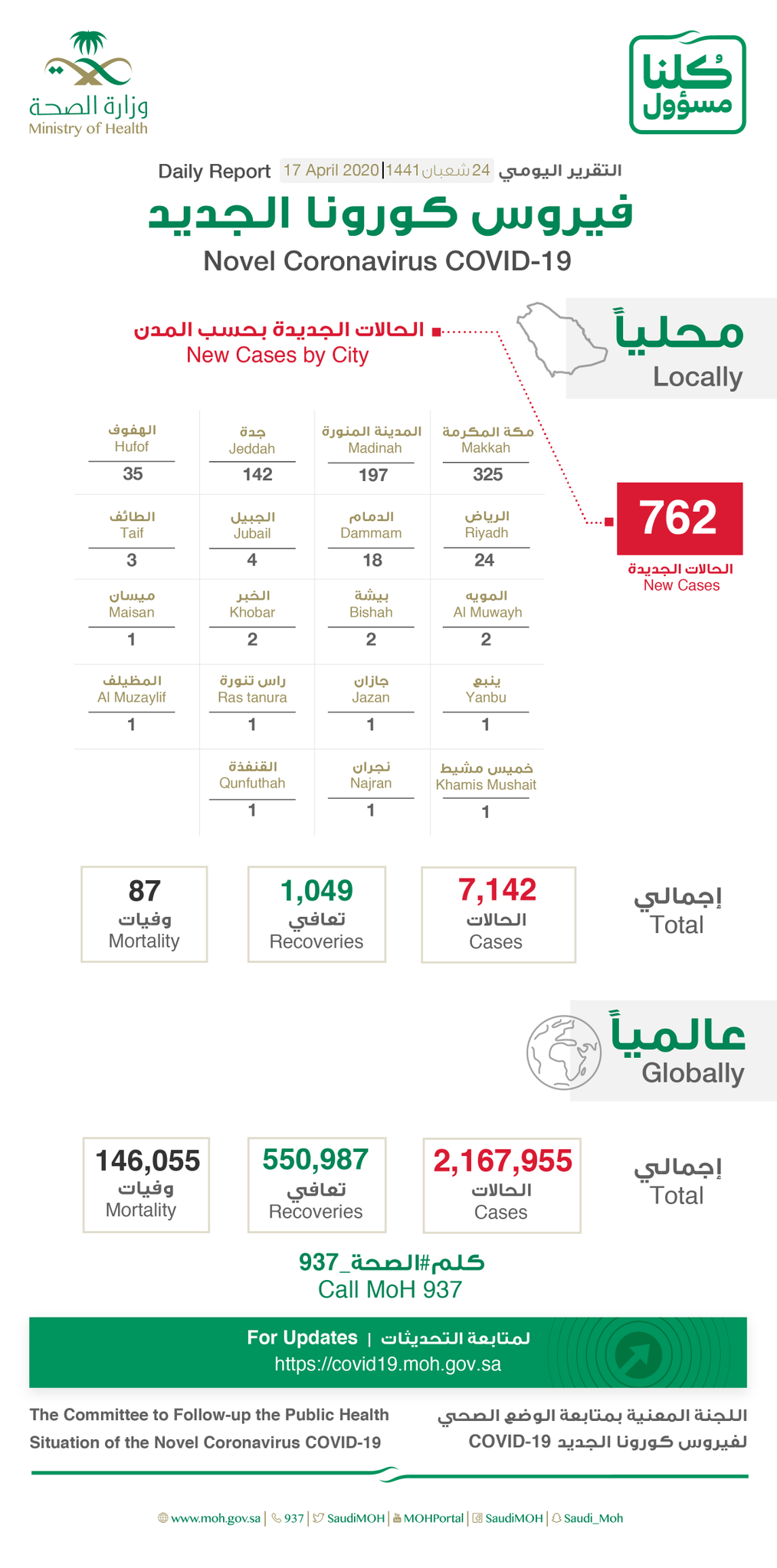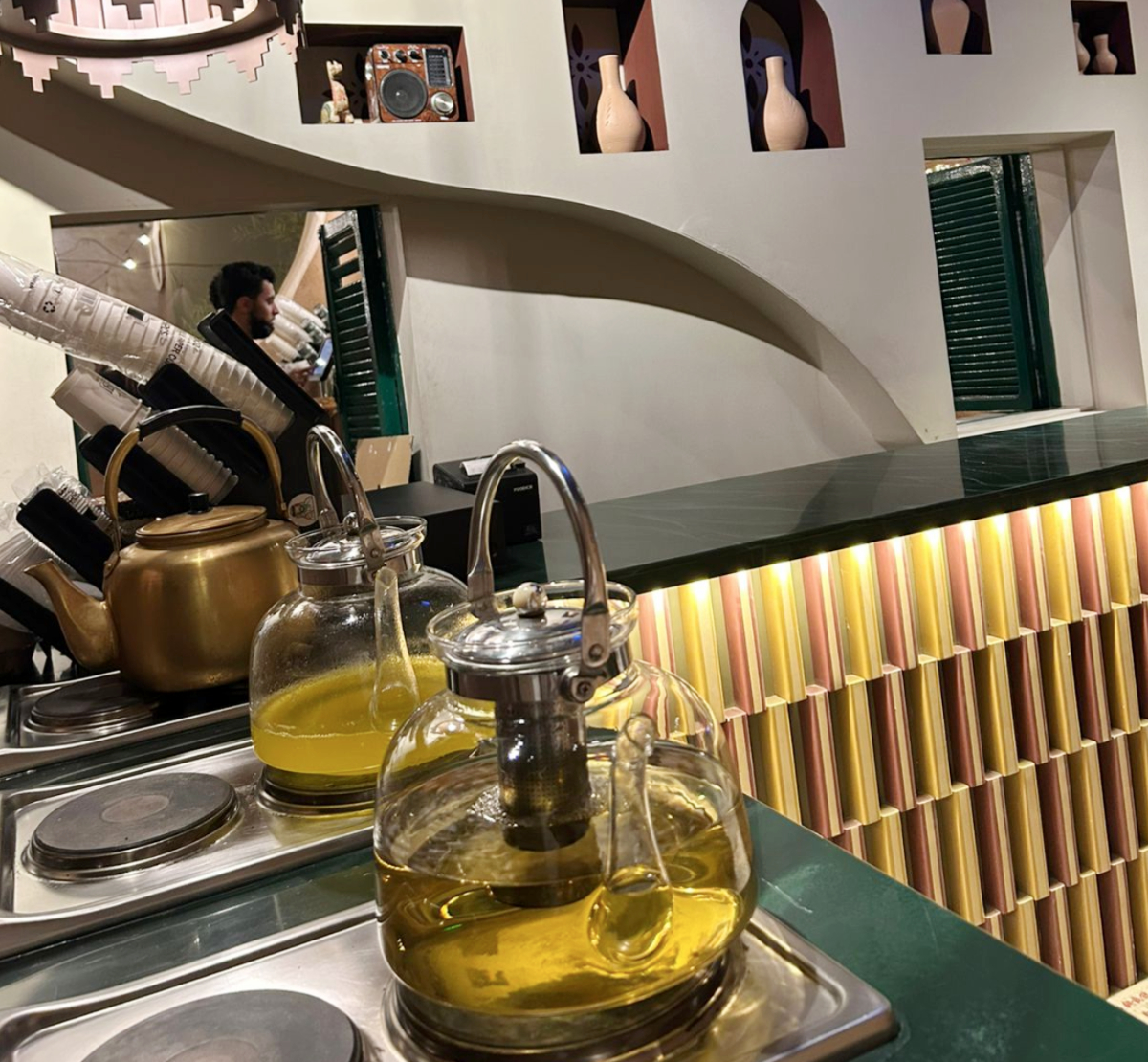JEDDAH: Mass testing for COVID-19 in Saudi Arabia has revealed 400 new cases in the country, a spokesman for the Ministry of Health said.
The ministry has been carrying out field trips to ensure control over the spread of the virus.
“These efforts contributed to the discovery of 50 percent of today’s cases (almost 400 cases), and are expected to increase the number of identified cases in upcoming days,” said the ministry’s spokesman, Dr. Mohammed Al-Abd Al-Aly.
The medical team’s field trips took place in overpopulated areas, workers’ housing units and places where previous cases had been uncovered in order to cease transmission.
Health Minister Tawfiq Al-Rabiah said neighborhood surveys had started accessing people in their homes even if they were not showing symptoms. He explained that the ministry had also expanded the detection “from the car” to accelerate the process.
“This was reflected in the increase in the number of infections that don’t require hospitalization and our ability to contain (the situation) early,” said Al-Rabiah.
A total of 762 new cases of COVID-19 were recorded in the Kingdom on Friday, bringing the total number of cases to 7,142. There are now 6,006 active cases, 74 of which are critical.
Al-Aly announced 59 new recoveries, taking the total number of these to 1,049, while four new deaths were reported, raising the death toll to 87.
The latest deaths were expats between the ages of 41 and 82. Two were in Jeddah, one in Makkah and one in Tabuk.

The Ministry of Interior announced 24-hour curfews on two Saudi governorates, Al-Dayer and Samta, as of Friday until further notice.
The curfew is applicable to all parts of the two governorates, with no entry or exit allowed. The curfew excludes those working in key occupations in the private or government sector who were previously exempted.
FASTFACT
7,142 is the total number of coronavirus cases.
1,049 is the total number of recoveries in Saudi Arabia.
Adults in Al-Dayer and Samta are only allowed to leave their houses in emergencies, such as for health care or food supplies, and only around their districts from 6 a.m. to 3 p.m.
A spokesman for the Ministry of Interior, Col. Talal Al-Shalhoub, warned people against forging their curfew permits as the crime could result in one to five years imprisonment as well as a fine of SR500,000 ($133,000).
The ministry is trying to limit peoples’ trips to government facilities for national ID and driver license renewals, so it has extended the expiry dates of current national IDs, allowing citizens to renew the documents electronically without the need for examinations that require the physical presence of applicants.
The Ministry of Education has, meanwhile, reassured parents that students of all grades will progress to the next year of their study program and that the grades of the first semester will be adopted for the second semester. This measure will be applied to students at kindergarten, elementary, middle school and secondary levels.
Ministry spokeswoman Ibtisam Al-Shehri said that several evaluations would take place to allow students to improve their grades in the current semester.
If the second semester’s grades were worse than the first, however, the school would automatically revert to the better grade to support students.
These evaluations would continue to ensure the students are graded fairly and that their levels and weaknesses are addressed in the coming year.
Al-Shehri also said that students who were not able to participate in end-of-year evaluations and did not accept their first semester grades could speak to the school and get re-examined in the coming semester, while high school graduates this year would have three opportunities to raise their grades.
The ministry will be launching online competitions for students during the summer and Ramadan to occupy students with educational programs during their stay-at-home breaks, including general knowledge and Quran competitions.

































